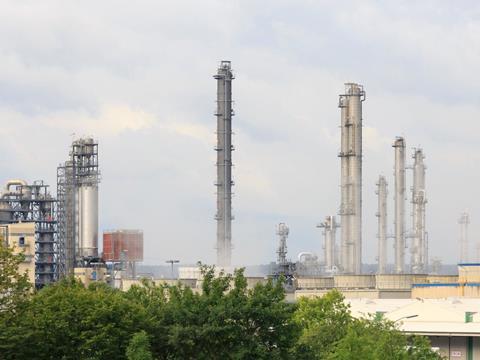
In a new position paper from Chemical Recycling Europe, the organisation argues that Mass-Balance is “essential” for achieving higher recycling rates through chemical recycling and reducing the plastics industry’s dependency on crude oil.
Chemical Recycling Europe claims that polyolefin plastic packaging – especially flexibles and films used for food contact – is least likely to be recycled, and instead represents the highest proportion of plastic waste sent for energy recovery, disposed of in landfill, or placed in the environment. While technological improvements to sorting processes and mechanical recycling systems are in progress, the organisation says that waste polyolefin material continues to be an issue and often fails to generate recyclates of a suitable grade for applications such as food contact.
It is therefore the view of Chemical Recycling Europe that chemical recycling with a Mass-Balance approach can provide an important solution to the challenge of recycling flexibles, multi-layer and more complex plastic materials for virgin-quality outputs including new plastics production.
According to the paper, Mass-Balance is a “proven tool” used in other industries to bring projects to scale and deliver social and environmental benefits. As an example, Chemical Recycling Europe identifies a mass balance approach as reportedly enabling renewable or ‘green’ energy to flow through the same grid as fossil energy.
Chemical Recycling Europe suggests a similar approach for the chemical recycling industry, where “the substitution of crude oil-based feedstock with recycled hydrocarbon is integrated within petrochemical facilities”, building on existing infrastructure and forging new supply chains to support industry growth. The paper says this will be possible because chemical recycling technologies have already produced hydrocarbons that are indistinguishable from crude oil-based feedstock.
In addition, the paper alleges that this is a more viable approach than a segregation model, which is currently used in mechanical recycling, as it would be premature to invest in facilities dedicated only to processing products from chemical recycling. A segregated solution would apparently also disregard the gradual approach of integrating and testing innovations currently favoured by the chemical recycling industry.
The paper identifies three approaches to mass balance. This includes Fuel-Exempt, an interpretation that would discard the proportion of the recycled output that goes towards fuel and energy production. According to Chemical Recycling Europe, this approach would require clarity across the EU as to how these products would be valued and to mitigate the risk of them being lost to the system.
The Polymer-only approach named in the report would allegedly discard the high-value, non-polymeric, chemical products generated in chemical recycling processes. Chemical Recycling Europe argues that the sector is against this interpretation, claiming that it is restrictive and would not be considered a recycling process within the Waste Framework Directive.
The Free-attribution interpretation includes the full recycled output, according to the paper, and this output would be allocated to polymers and other chemicals with the backing of a certification process. Chemical Recycling Europe states that Free-attribution would most accelerate the development of the industry. Importantly, Free-attribution is the only interpretation identified by the paper that would allow for the merging of chemical recycling into current petrochemical systems.
Some of the main challenges featured in the paper arise from a lack of clarity surrounding Mass-Balance, including uncertain demand, prices, and investments if polyolefin users fail to recognise the validity of processes that use this method. However, Chemical Recycling Europe emphasises the importance of a Mass-Balance approach going forward, implying that Europe will fail to create a circular economy for plastics and meet net-zero targets by 2050 without it.
As such, the paper concludes with a call for the European Commission, its consultants and stakeholders, and Chemical Recycling Europe to collaborate on a legally compliant regulatory framework for Mass-Balance. Additionally, certification schemes and education will be required, the organisation says, to build trust in the Mass-Balance approach within the chemical recycling industry.
Other organisations and companies have also responded to the ongoing consultation and proposed revisions to the Packaging and Packaging Waste Directive (PPWD) that prompted Chemical Recycling Europe’s position paper.
In July 2021, the European Recycling Platform reinforced recommendations for legal clarity on the use of alternative recycling technologies like chemical recycling. European Bioplastics reflected similar concerns to both Chemical Recycling Europe and the European Recycling Platform as to what will fall within the remit of ‘recycling’ and corresponding quotas.
In a position paper published in February 2021, Zero Waste Europe expressed concerns that a Mass-Balance approach to chemical recycling could “become a major tool for greenwashing” and ultimately undermine measures to improve the recyclability of plastics. The group argues that it could allow the chemical industry to obscure the true recycled content rate of plastics through offsetting or trade-offs.
Meanwhile, a white paper from the Ellen MacArthur Foundation supports the potential of mass balance in chemical recycling, but adds that it would need to be based on chemical value-related properties rather than mass itself. Similarly to Chemical Recycling Europe, this white paper suggests that any framework based on Mass-Balance would need pre-defined and robust rules while also being understandable for the end user. It acknowledges also that the potential benefits of Mass-Balance chemical recycling initiatives in terms of emissions and net-zero targets are not yet proven.













